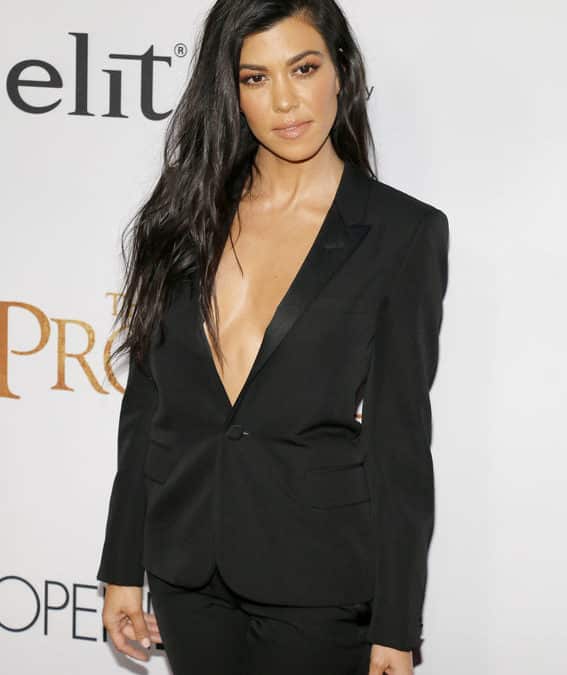Learn about the ways in which 10 celebrities ended their toxic and codependent relationships.
The #MeToo movement has raised awareness of the oppression – of women and men – within the Hollywood industry and the workplace in general. One insidious form of oppression emerges from the deadly dance between narcissistic predators and codependent enablers – one is addicted to taking, the other to giving.
Even wealth and fame can’t deter this destructive dynamic (in fact, the rich and famous and their settings of power/mass media act as magnets to narcissists). Proof of this comes from the many celebrities who have bravely revealed their struggles with narcissism and codependency.
Here are a sampling of ten celebrities whose codependency stories have made the news – although these artists will form merely the visible tip of the iceberg of grief, loneliness and destruction that this toxic dynamic brings through our doors.
Disclaimer: These profiles are purely speculative. I am unable to diagnose narcissistic or codependent relationships or tendencies from newspaper and magazine stories and even self-diagnosis can be inaccurate. Even so, these examples do scream narcissistic/codependency dancing!
Courteney Cox
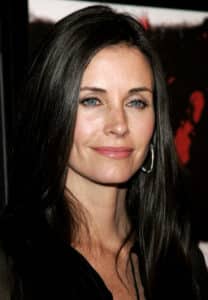
When the former Friends and Scream star split up with fellow actor David Arquette, he hinted at Courteney’s codependent tendencies, saying that she needed to mother people.
Courteney then hooked up with Snow Patrol guitarist Johnny McDaid and the couple had quite a turbulent on-off relationship, getting engaged, splitting up and then getting back together again. There is a suggestion that McDaid didn’t like Cox spending time with male co-stars and that he abruptly cut her off and left her to return to Ireland without letting her know where he was. When they got back together it was with the understanding that Courteney would spend more time in the UK (and presumably less time with LA-based co-stars). Cox was left devastated by the split and blamed her own ‘people pleasing’ in part for the problems. Is there a narcissist-codependent dynamic at play in this relationship? Control and isolation of a codependent is critically clear here.
Mel B

The acrimonious divorce between Mel B (aka Scary Spice) and Stephen Belafonte included accusations of drugging, physical abuse, sexual manipulation, threats with a firearm and manipulation through Mel’s children. It is claimed that Belafonte used numerous control tactics associated with narcissists including triangulation (where one or more third parties are recruited in various ways to unwittingly join in the abuse); coercion and economic abuse by keeping her own money hidden from her.
It should be pointed out that Belafonte denied the accusations and the pair settled out of court so we may never know the truth of what happened to end their relationship. Straight after the split, Mel B was rumoured to have hooked up with a policeman and was practically living with him. If this is true, could it be evidence of another love-bombing phase and, in this case, is Mel B in danger of repeating the same pattern? Or was it all just media hype as Mel B now seems to be spending a lot of time with her hairdresser Gary Madatyan (although he denies they are an item). Unfortunately, as much as a narcissist needs a codependent as a parasitic host, a codependent is equally needy. In most cases, without adequate therapeutic work or education, they will run towards that familiar, albeit unhealthy feeling. Read my book Mel or engage a therapist that will rattle and roll with you to work this out. Heal well.
Kourtney Kardashian

The chronically indecisive Kourtney Kardashian may have serious issues underlying her inability to make up her mind…like her toxic relationship with former boyfriend Scott Disick. She admitted to being codependent and always bouncing ideas off the father of her three children. Then there was the time when Disick hurt his hand after smashing a mirror and asked Kourtney to see him. Despite initially refusing, Kourtney promptly made a u-turn and visited him at his bedside.
Of course, it takes two to make a codependency/narcissist dynamic so how does Disick score on the narcissism scale? The fact that the drama of his relationship with Kourtney often overshadowed the rest of the KUWTK action speaks volumes about his egocentricity and attraction to the limelight. What about personality traits? Well, sister Khloe Kardashian once pondered whether Disick was a psychopath but, after comparing him to serial killer Ted Bundy, she decided he wasn’t (although a sociopath has many similar traits to a psychopath but is less aggressive so this could be a better shoe to fit!)
Narcissists are often compulsive liars and manipulators and Disick has shown himself to be just that, not only with his cheating on Kourtney but with other aspects of his life (like his work for GNC which a company rep denied ever existed). Disick exhibits a lack of true and genuine empathy with others yet can turn on the charm when he needs to wheedle his way back into favour with the Kardashian clan. He clearly likes to humiliate and fuel his own ego by disrespecting others (e.g. shoving money in a waiter’s mouth, teasing Kourtney about her post-baby weight gain, etc.) Whether he is a narcissist, sociopath or not, this kind of psychological abuse is often a part of domestic violence and could have led to Kourtney becoming unwell and fainting through lack of food and extreme exercise (as well as living a non-peaceful, anxiety fraught and depressing life).
Disick’s impulsivity, another narcissistic trait, comes across in his early criminality and drunken behaviour but perhaps the most telling evidence was his knightship.
This he bought over the internet and now he apparently insists his family call him ‘The Lord,’ ‘Lord Disick’ or ‘LD.’ This indicates a need for grandeur and status above and beyond his acceptable ‘OK enough’ self.
Fortunately, the fact that Kourtney refused his proposal and has been ‘free’ of Disick for a few years bodes well for her recovery. However, she is still at risk or attracting the same, familiar type of partner unless she fully understands her part in that toxic relationship and works on not repeating this.
Whitney Cummings
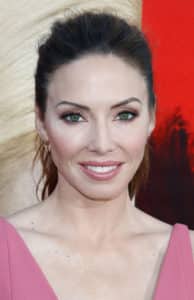
We move on from cases of suspected and potential codependency and narcissism to celebrities who have been very open about admitting their problems. We start with comedian and TV executive Whitney Cummings who has regularly spoken about her battle with the ‘disease’ of codependence. The pattern of behaviour is believed to start with early childhood experiences and often arises in response to self-centred parents. Whitney spoke of how she used to play the role of a peacekeeper at home, putting out inter-familial fires through her performances.
Whitney explains how codependents are unable to tolerate the discomfort of others and are pathologically thoughtful. She herself would find herself constantly buying gifts for others but unable to receive them graciously. She was finally forced to face her problems when she was struck down by pneumonia having missed the warning signs due to her incessant focus on others. She had been to Al-Anon meetings before, helping others to face their addictions. This time she joined to tackle her own.
Whitney has also provided insight into how vulnerable some people are to forming codependent relationships based on need, obsessing over their partners’ problems as a way to avoid their own. She explains how she would be irresistibly drawn to people who needed fixing, admitting that her dream partner would be Eminem because she feels she could change him. In an interview with Larry King, she admitted to staying in toxic codependent relationships for too long.
When comparing codependence with simply ‘being nice,’ Whitney explains it’s all about the motivation. Whereas a healthy person might do nice things for their own sake, someone with codependence is acting to create a debt, to control perception and to avoid being abandoned.
Whitney continues to improve her relationship with herself and admits she can now say ‘No!'(which may come in handy as she seeks to distance herself from the fallout from the Roseanne Barr racist tweets controversy!)
Lily Collins

Lily Collins, daughter of Genesis drummer Phil, came clean on her history of codependent relationships in her book, ‘Unfiltered: No Shame, No Regrets, Just Me,’ published in March 2017. The term co-dependency arose from the observation of enabling behaviour shown by the partners and family members of alcoholics. Collins reveals that a number of her codependent relationships were with men who were addicted to alcohol and, in one case, drugs too. Her father also battled alcohol addiction. In one particularly toxic relationship, Collins found herself having to constantly reassure her worried and insecure addict of a boyfriend. As the situation progressed, nothing she could say or do would work. Collins tried hard to be the perfect partner, misconstruing her partner’s attentions as real love and worrying that she would be and have nothing if he ever left her. She became, in her own words, ‘the definition of codependent.’ According to her book, Collins endured deceit, verbal abuse and manipulation as her boyfriend controlled the amount of time she spent with family and friends, picked on her insecurities and constantly needled her. Eventually, Collins became isolated from friends and family, describing herself as an island but not the strong and independent kind. Collins only woke up to the severity of the situation after her partner put his hands around her throat during an argument. This prompted a temporary split but Collins did return to the relationship before her mother, Jill Tavelman, helped her make a final exit. Collins goes into detail about how the pressure of pursuing two appearance-led careers while trying to cope with her father’s divorce from his third wife led to her developing eating disorders. She used that experience as inspiration for her role as Ellen in the film, ‘To the Bone,’ about an anorexic young woman and her battle to become healthy. Collins says she has now learned that you can help people without being in a relationship with them and that her priorities are now living in the moment.
Dr Drew Pinsky

If there is one person qualified to speak about celebrities and addiction, it’s Dr David Drew Pinsky, host of ‘Rehab with Dr Drew.’ The reality show, which ran for six series, followed celebrities such as Jeff Conaway, Brigitte Nielsen and Dennis Rodman as they battled their demons.
Dr Drew also describes himself as a ‘severe codependent’ and a ‘closet narcissist,’ highlighting the interdependence of the conditions. Although he believes his ability to empathise on a deep level with his patients is a key to his efficacy, he has admitted to being manipulated due to his desperation to help others, even enabling addicts to get hold of drugs. He also revealed that he always has a nurse present on set who will kick his chair off camera if he is lapsing into codependent mode. In common with Whitney Cummings, Dr Drew confesses to being a workaholic, another form of self-neglect in the service of others. He even feels he needs to keep on top of his Twitter activity in order to not disappoint his 2.5 million followers.
Dr Drew refers to addiction as the ‘problem of our time’ and believes that sex, love and relationship addiction are all relatives of codependency. In fact, he named ‘Codependency No More,’ rather ironically written by a Mel B (Melody Beattie), as one of four essential self-help books of modern times.
At the end of my book, ‘Narcissism and Codependency: Both Sides of the Coin,’ I emphasise the importance for codependents of making a clean break from their object of addiction. (See the chapter ‘Getting out is the Only Path to Healing.’). Dr Drew also stresses the importance of completely giving up the source of addiction and advises replacing it with something else to avoid the experience of going ‘cold turkey.’
Kristen Johnson
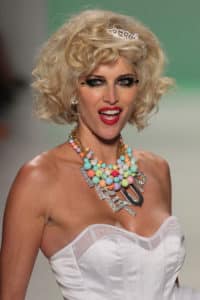
Best known for her role as Sally Solomon on ‘3rd Rock from the Sun,’ actress Kristen Johnson – who claims everyone is addicted to something – has been open about her battle with Vicodin and red wine. She has also admitted to being addicted to saving broken people (i.e. codependent) and explained how this trait was woven together with her substance addictions.
Her advice is deceptively simple: you have to stop what it is you are addicted to. In terms of toxic codependent relationships that means making a clean break, no matter what feelings come up.
Kristen has detailed her life journey in her book: ‘Guts: The Endless Follies and Tiny Triumphs of a Great Disaster.’
Ashley Judd

One lady who knows all about the oppression of women is actress and YouthAIDS global ambassador Ashley Judd who is currently taking Harvey Weinstein to court over claims he sabotaged her career when she rejected his sexual advances. She claims that her response to the harassment led to her being overlooked for a role in ‘Lord of the Rings,’ with director Peter Jackson appearing to confirm that Weinstein warned him against working with her.
The actress, who starred in ‘Frida’ (2002), ‘De-Lovely’ (2004) and ‘Bug’ (2006) among others, spent 47 days in a Texas treatment facility for behavioral addictions and issues which included codependency, depression, raging, blaming, numbing, and denying and minimising her feelings. In her memoirs, ‘All That is Bitter and Sweet,’ she revealed her traumatic past which included inappropriate exposure to sexual activity as a child, incest and sexual abuse and harassment, including an attempted rape while modelling in Japan. She wrote the revealing book in the hope that it would encourage others to speak out about their experiences.
Her response to the family chaos was to become the perfect child (with her country singing sister Wynonna cast as the ‘wild’ one). Despite holding everything together on the outside, Judd struggled with depression from an early age and even held a loaded gun to her own head as she contemplated suicide.
Following her treatment, Harvard graduate Judd says all of her relationships have improved and she is now able to give and receive confrontation and to feel all feelings so that they pass more quickly.
She also reveals how a pastor first opened her eyes to the fact that perfectionism was the highest form of self-abuse, something she reminds herself of when she feels herself slipping.
Quotes that now inspire Judd include, ‘It’s better to begin in the evening than not at all,’ and ‘God gives you a chance to start over with every breath.’
Brooke Shields
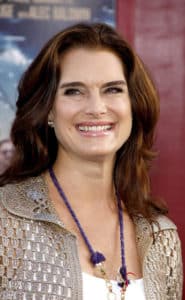
Most of the celebrity codependency stories above focus on the relationship between a celebrity and their partner. Brooke Shields’ story, fully told in her book, ‘There was a Little Girl: The Real Story of my Mother and me,’ centers on the codependent relationship between Brooke and her late alcoholic mother, Teri Shields.
Having lost a son prior to Brooke’s birth and suffered the tragedy of losing a fiancé to a traffic accident, Teri turned to the bottle, drinking vodka on a daily basis. According to Shields, ‘trying to navigate’ her mother left her feeling guilty, affected her confidence and turned her into a perfectionist workaholic – a common theme in codependent children as they grow up (see the earlier examples of Whitney Cummings, Dr Drew and Lily Collins). In an interview, Brooke explained how her childhood upbringing triggered a survival reflex which made her feel strong enough to cope with her mother.
For Brooke, the turning point came when she had her own children. She then discovered her own voice. Today, she has a more well-rounded self-image and has less patience with putting herself down. She admits to still giving herself a hard time on occasion though.
Alanis Morissette
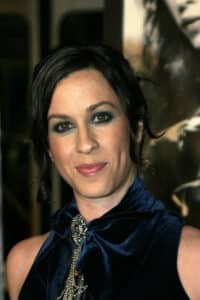
Finally, another celebrity who is candid about her struggles with codependency is Canadian singer songwriter Alanis Morissette. In an article in ‘The Fashion Spot,’ Morissette explains unhealthy codependent relationships in terms of love addicts and love avoiders, identifying herself as the former. She explains how the other person in the relationship was almost irrelevant – as long as there was ‘a back walking away,’ she was repeating a familiar childhood pattern.
Morissette goes on to explain that the codependency drama ‘staves off intolerable reality.’ As long as she was obsessing about someone else, she didn’t have to process her own childhood grief and suffering.
She adds that unhealthy codependent relationships are fostered by 90 per cent of love songs – including her own – which often focus on themes of infatuation, unrequited love and other dramatic attachments. Celebrities are particularly susceptible to these flawed, child-like codependent relationships, enjoying the dream start and jumping off as soon as things get tough rather than realising that the struggle is part of growth towards greater understanding and a more mature, adult relationship.
The deep-rooted dynamics at play in codependency take a long time to work through. Morissette says that it can take from three to seven years to begin to feel the payoff. Healing can come, she says, from individual, couples and family work.
As a counsellor who has worked with a number of celebrities over my more than quarter of a century of practice, I can confirm that money, power and influence is stripped away in the therapy room. When it comes to dealing with the relationship problems we all share as humans on this planet, it really is a case of #MeToo
Codependent Relationships: Image Attribution:
Courteney Cox/Mel B/Kourtney Kardashian/Whitney Cummings/Lily Collins/Dr Drew Pinsky/ Ashley Judd/ Brooke Shields/ Alanis Morissette: buzzfuss / 123RF Stock Photo
Kristen Johnson: fashionstock / 123RF Stock Photo

